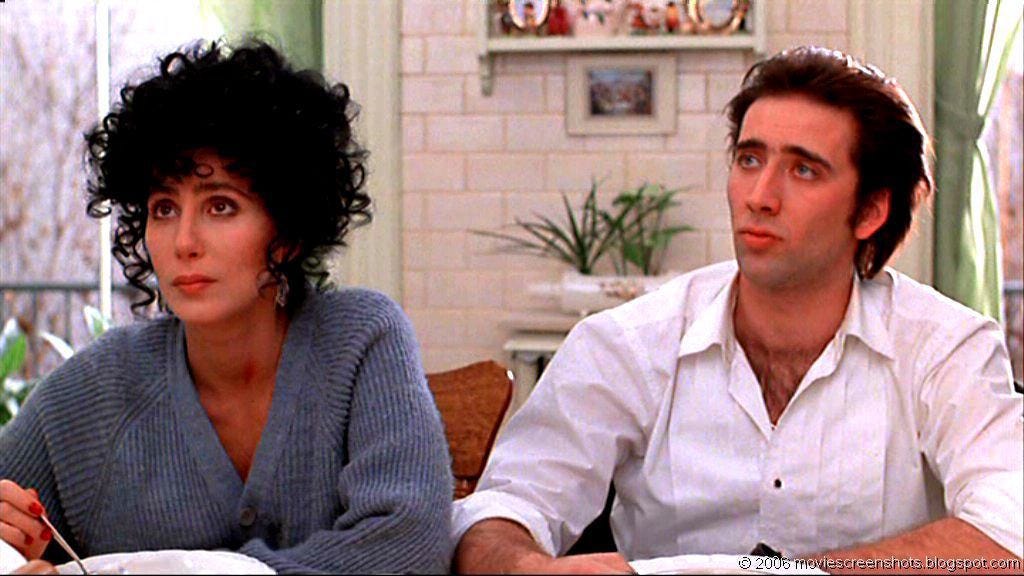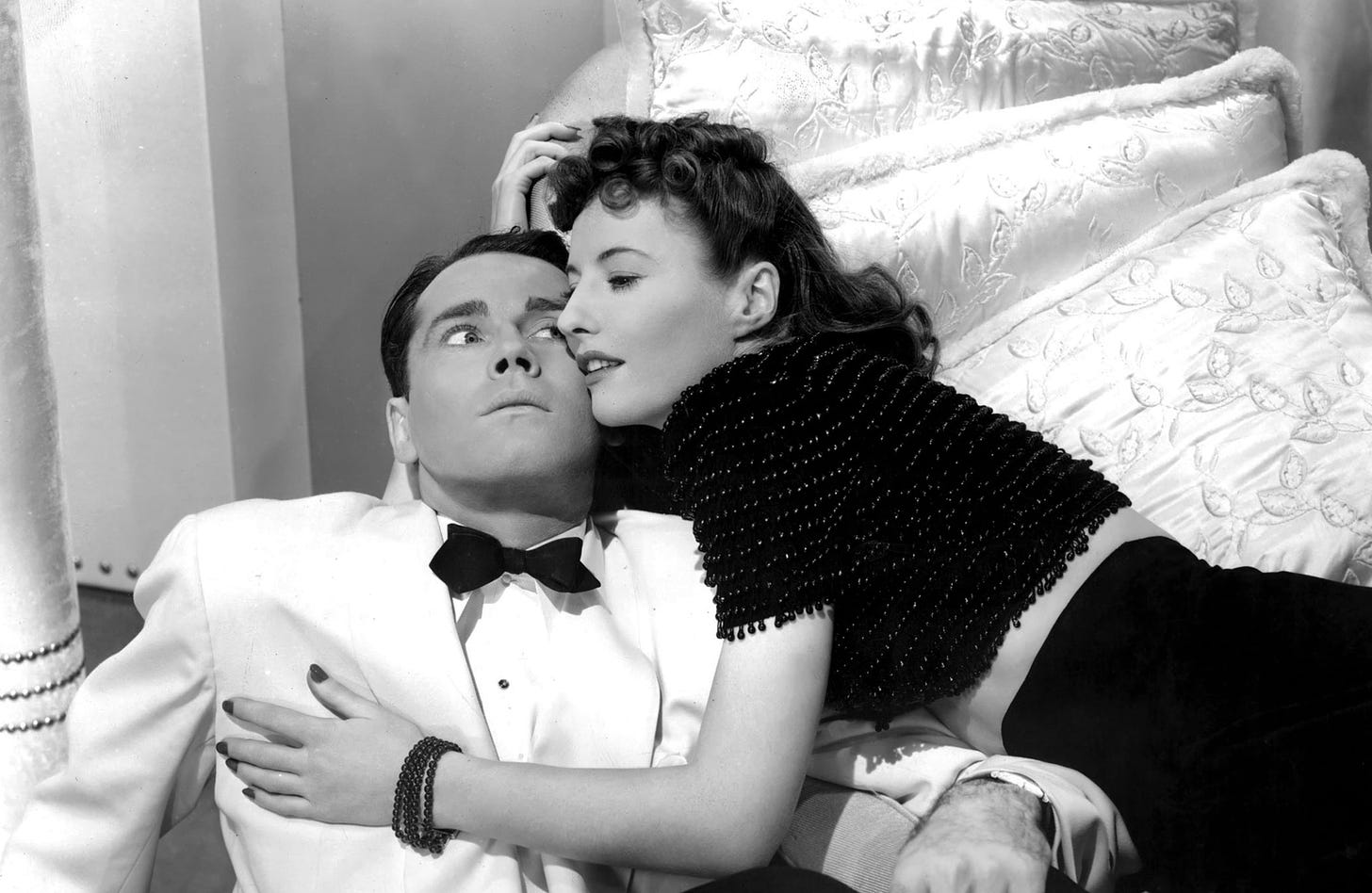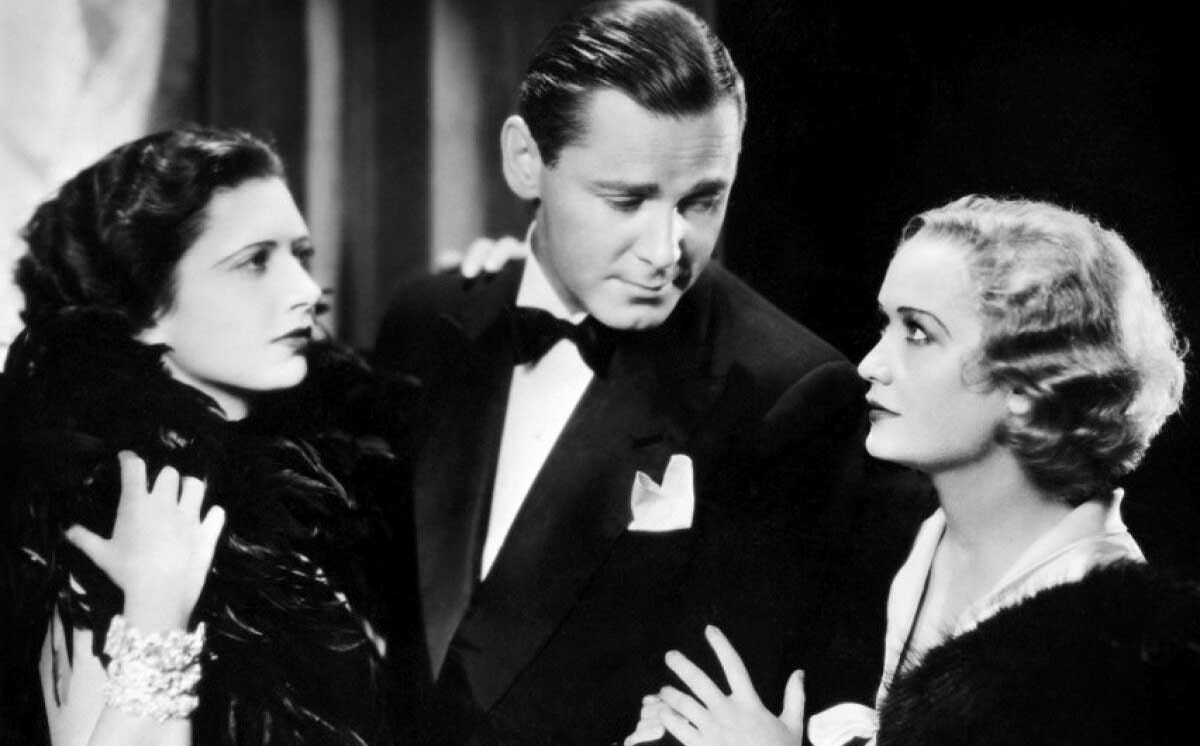The 10 Best Rom-Coms
In response to a debate yesterday over The Ringer's list of the 50 best rom-coms, none released earlier than 'Harold and Maude,' I offer a list of my own.
Yesterday, The Ringer released a list of The 50 Best-Rom-Coms in movie history that got batted around a bit on social media, mostly for being ahistorical. The only film on the list made before 1980 is Harold and Maude, an odd choice regardless, given the quirky (and not all that romantic) peculiarities of the May-December relationship at its center. To cut the team of writers and editors who created the list some slack, the term “rom-com” is a relatively recent coinage, and you could make the argument that its #1 choice, 1989’s When Harry Met Sally, was the start of the subgenre, even if Rob Reiner’s film rips off Annie Hall extensively and shamelessly. (And with less insight and verve. Woody Allen has turned into a He Who Should Not Be Mentioned type, but this is a film that won Best Picture for a reason, and still casts an awfully long shadow.)
It’s not my intention to tear down The Ringer—which publishes my work occasionally, including a piece this week on Robert Eggers’ first two films—but only two of my favorite romantic comedies appear on its list, so I wanted to offer my own top ten as an alternative. My list leans heavily on the screwball heyday of the late ’30s and ’40s—credit Stanley Cavell’s brilliant book Pursuits of Happiness: The Hollywood Comedy of Remarriage for that—though they’re all American studio films about white characters, which are obviously limitations in themselves. Perhaps there is a legitimate genre distinction between these classic romantic comedies and whatever is meant by “rom-com.” I’m sticking with the term. But either way, I can guarantee you’ll have a better time watching any of them than Hitch (#15) or She’s the Man (#41):
10. Something Wild (1986)
The chemistry between a modern, libertine woman and a buttoned-down square is a classic rom-com premise—see The Lady Eve, much further up this list—and the genius of Something Wild is how effectively it kinks up this sturdy, old-fashioned foundation. The wildness starts with Jeff Daniels’ uptight banker pulling off a dine-and-dash on his lunch break, and Melanie Griffith’s spiky-haired bad-girl taking notice, recognizing a rebellious streak that she can nourish (and exploit). Their road-trip adventures abound with sexy encounters and comic episodes—a stop at her high-school reunion is particularly funny—and Demme even has the audacity to introduce real danger when Griffith’s violent ex (Ray Liotta) turns up in the third act.
The Reveal is a reader-supported newsletter dedicated to bringing you great essays, reviews and conversation about movies (and a little TV). While both free and paid subscriptions are available, please consider a paid subscription to support our long-term sustainability.
9. Groundhog Day (1993)
It’s astonishing to me that Groundhog Day has not only become an acknowledged classic, but the source of a common premise for movies and TV shows like Palm Springs and Russian Doll, as if a single day that keeps repeating on a mysterious cosmic loop is itself endlessly repeatable. But of the many things to recommend about this movie—the structural payoffs of Danny Rubin and Harold Ramis’ script, the affectionate etching of small-town America, maybe Bill Murray’s funniest performance—I most appreciate how Murray’s TV weatherman’s efforts to use his accumulating knowledge to woo his producer (Andie MacDowell), like learning French poetry, are met with failure. To break the loop, he has to express that most elusive quality: sincerity.
8. Adam’s Rib (1949)
An argument could be made for including a few of the nine films Spencer Tracy and Katherine Hepburn starred in together—though please don’t make one for Guess Who’s Coming to Dinner—but Adam’s Rib stands out as the most productively frisky of the bunch. Tracy and Hepburn play married lawyers who find themselves on opposite sides of a case involving a woman (Judy Holliday, wonderful as always) who shot her abusive, two-timing husband. The trial becomes an arena for a battle-of-the-sexes debate, with the arguments spilling over into the couple’s domestic life. Adam’s Rib makes it all feel lively and urgent, staged at a time when the stakes were high for society, too. They still are.
7. Moonstruck (1987)
After recently seeing this in a theater or the first time since 1987, I was struck by how much it pulses with the Golden Age studio magic that Hollywood hasn’t been capable of producing in decades. Every element—casting, script, direction, production design—harmonizes so perfectly that the film would be unimaginable if any one piece was taken away, like Casablanca with Ronald Reagan in the lead instead of Humphrey Bogart. (That was never going to happen, but it’s always been a fun thought experiment.) No film in color has better screwball mechanics, and Moonstruck adds an affectionate rendering of Italian-American culture and an understanding of love as a messy, passionate, lifelong argument.
6. The Shop Around the Corner (1940)
File You’ve Got Mail (#3 on The Ringer’s list!) under Reassessed ’90s Cultural Items I Never Liked And Still Don’t (see also: Counting Crows, Hook), but at least its continued popularity buoys the infinitely better rom-com that inspired it, Ernst Lubitsch’s The Shop Around the Corner. Perhaps there’s no use bristling over Meg Ryan’s independent bookstore owner acquiescing to the chain store executive (Tom Hanks) who claims her business along with her heart, because the way James Stewart’s Budapest store clerk treats his disagreeable co-worker (Margaret Sullavan) after finding out they’re secret pen pals also has a cruel edge to it. But Lubitsch uses it to create a romantic tension that pays off in an emotional ending that doesn’t also feel like a surrender to the dark side.
5. It Happened One Night (1934)
It Happened One Night is another example of a classic yielded from a unique confluence of timing and talent: The unbridled naughtiness of pre-Code Hollywood, the distance between the haves and the have-nots in the Depression, the populist touch of director Frank Capra, the chemistry between Clark Gable’s grizzled reporter and Claudette Colbert’s naive, adventurous young socialite. From the moment Colbert’s Ellie dives off her father’s ship to pursue the (unworthy) man she desires, It Happened One Night is energized by her rebellious spark and how she’s transformed by getting a glimpse of the world as it really is. Few films are this sexy. Or this democratic.
4. The Apartment (1960)
Much like It Happened One Night, The Apartment is strongly connected to the experiences of ordinary people, with Jack Lemmon, the ultimate Everyman, cast as the sucker who thinks his hard work and accommodating personality will earn him a leg up in the American workplace, but gets nothing for it. Writer-director Billy Wilder gets plenty of comic mileage out of Lemmon’s sad insurance accountant loaning his apartment to executives with mistresses but is completely earnest in developing his relationship with Shirley MacLaine’s lowly elevator operator, who’s in a compromising situation, too. Their romance doubles as a touching assertion of dignity.
3. His Girl Friday (1940)
There’s not a journalist worth his or her salt who doesn’t wish to possess the sophistication and wit of Cary Grant and Rosalind Russell in His Girl Friday, which turns newsroom banter into a dazzling display of lightning-fast on-the-job instincts and battering one-liners. As Grant’s editor scrambles to keep Russell’s star reporter (and ex) from abandoning her post for a bland, earnest suitor (Ralph Bellamy), the film becomes a forward-thinking rejection of traditional gender roles, arguing that the talents of this particular woman would be lost to domesticity. It’s also a love letter to journalism, a noble calling however much it contributes to dysfunctional relationships.
2. The Lady Eve (1941)
Has any human being ever radiated more heat in a movie than Barbara Stanwyck in The Lady Eve? As part of a father-daughter team of world-class swindlers, Stanwyck’s Jean boards a luxury liner to scam Henry Fonda’s straitlaced heir to a brewery fortune and succeeds in thoroughly overwhelming him with her brazen sexuality. But his naivety has an equally intoxicating effect on her, and the two eventually find themselves on equal footing, each making themselves worthy of the other. Both stars are superb, and Stanwyck’s performance has a ranginess that suits this redeemed sinner, starting as a wicked slinger of looks and lines (“I need him like an ax needs a turkey”) before evolving into a heroine who’s genuinely transformed by love.
1. Trouble in Paradise (1932)
More scam artists, more Lubitsch, more pre-Code naughtiness. Perhaps rom-com greatness has a formula, after all. Herbert Marshall and Miriam Hopkins star as two master thieves who meet in Venice and fall in love over a dinner in which they rob each other blind. (When Hopkins admits to pickpocketing Marshall’s wallet, he replies, “I know, you tickled me, but your embrace was so sweet.”) They agree to team up on a schedule to bilk a perfume-company heiress (Kay Francis) out of her inheritance, but part of the fun is that the heiress is no easy mark. Tightly constructed as a brisk 82 minutes and packed with tart, lively dialogue, the film, like His Girl Friday, seems to take place in a world more sophisticated than our own–this time with the added bonus of appreciating its appreciation of the art of the steal.
















Me love Ringer, but it 30-year-olds writing for 20-year-olds and they not really have sense of history. Even when they talk about sport, idea of old-timey baseball player is Bobby Bonilla.
Also, that last line about Groundhog Day and sincerity just more evidence that Bill Murray was absolutely perfect casting. Sincerity hit hardest when it come from someone who has devoted life into turning insincerity into art form (only real comparison is when David Letterman would momentarily get emotional, like after 9/11 or death of his mother).
And me got to Apartment and thought, "how this #4 on list? What movie better than Apartment?" And then me read rest of list and thought, "oh, right, those movies."
This is great (the idea that someone would leave The Apartment off a list of _50_ great Rom Coms is just...), but I'm going to lose sleep over that bit about Hook getting re-evaluated.